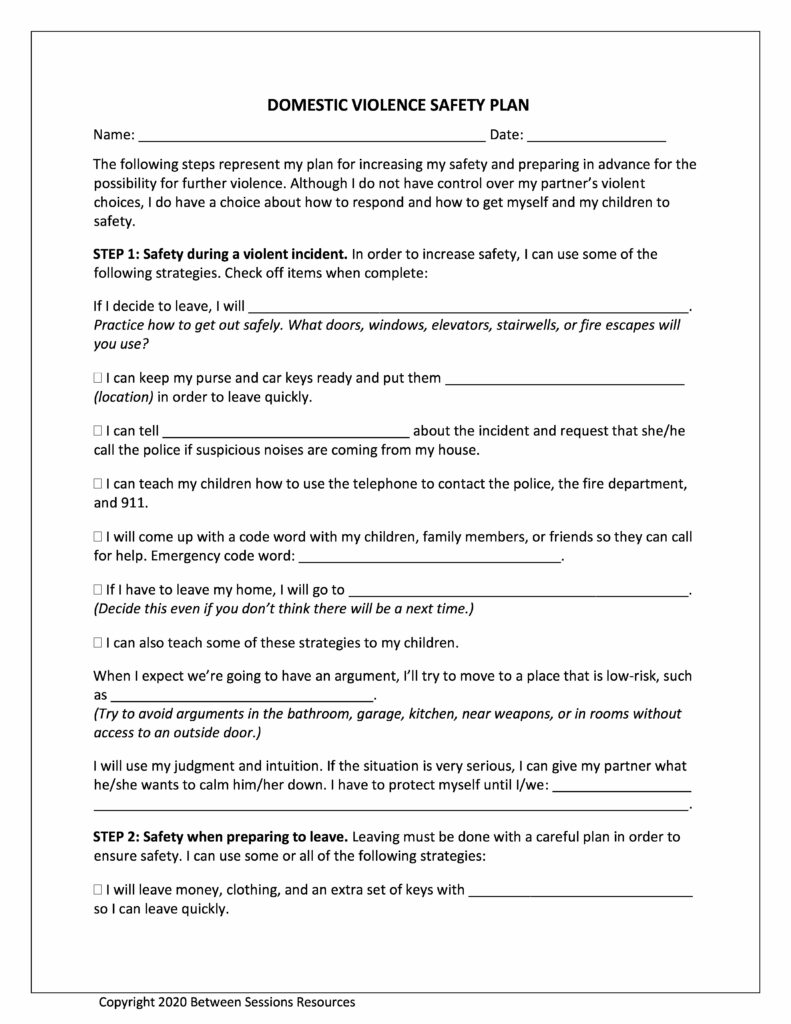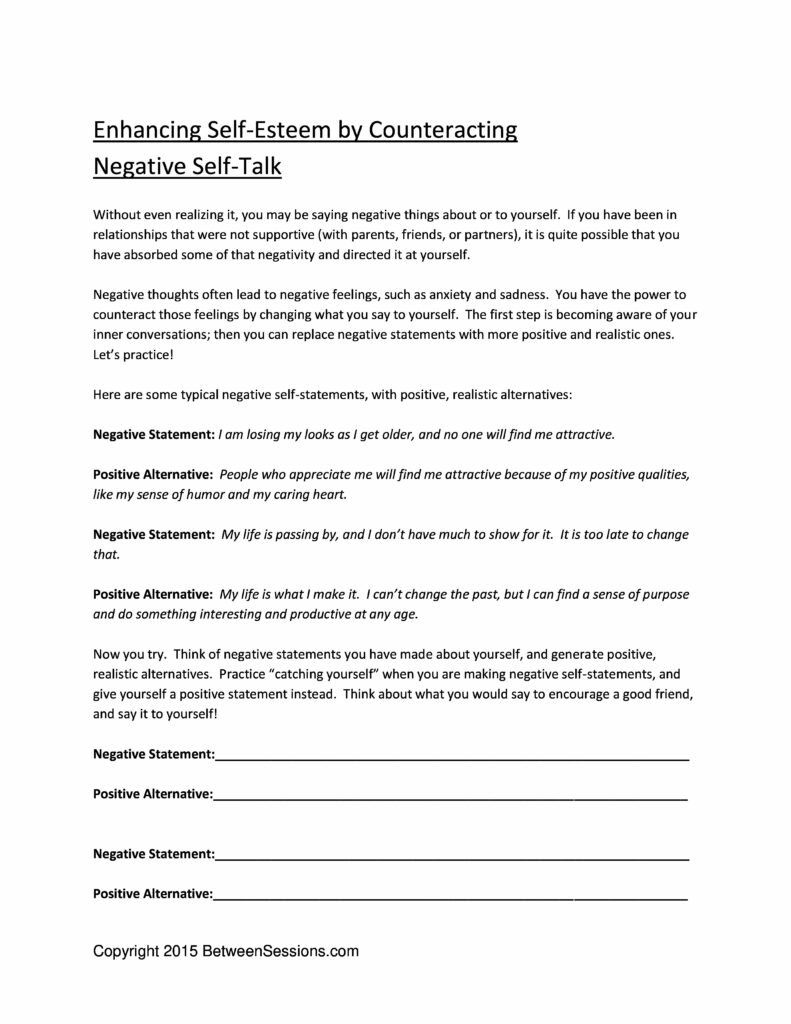Studies tell us that when professionals prescribe therapeutic homework, clients report significantly better outcomes. Our worksheets are derived from evidence-based therapies, and they are designed by experienced professionals. Use the navigation links on the left of this page to view tools in a specific category. Or use the search box at the top of this page to find the exact tool you are looking for.
To modify the tools, click the ‘Send to Client’ button by each tool to open the Psychology Forms Filler. You can then edit the tool as you see fit and either print it out or send it to a client to be filled out online. Click here for a tutorial on using the Psychology Forms Filler.
If you can’t find what you are looking for on this site, please let us know by
clicking here and our team of writers, graphic artists, and therapists will custom-design it for you.
This form can be used to help women increase their degree of safety and make appropriate choices for themselves and their children. Sections include what to do after a violent incident, what to think about when leaving an abusive situation, how to be safe in your own home, what to take when leaving, and more. (domestic violence, trauma, abuse, relationships, 1120)
This worksheet is designed to help people identify their moods during the day and talk about their feelings to someone else. Copies should be made, and the worksheet should be used for a minimum of seven days. (0315)
This worksheet is designed to help people with addictions determine whether they will be more successful in moderating their addictive behaviors or completely abstaining. The worksheet includes a rating scale of factors that might make it harder for people to moderate their addictions, as well as questions to discuss with a therapist or counselor. (addiction, substance abuse, 0215)
This worksheet is intended to help clients who self-injure learn to avoid the objects they commonly use to hurt themselves. It will be most effective when used with a comprehensive safety plan. Form Type: PDF (0215)
This worksheet is designed to help people put their problems into perspective. Taking an art therapy approach, people draw their small problems in little frames and the important things in their lives in the big frame. This worksheet can be a good opening to introduce a discussion about values. (values, art therapy, problem-solving, 0215)
Rooted in the work of Dialectical Behavior Therapy (DBT), this worksheet is designed to help clients let go of their style of negatively judging others, and to help them understand the negative effects of these thoughts and their associated behavior. (DBT, judgment, 0215)
This worksheet can help people identify and change the negative self-talk that can lead to low self-esteem.(self-esteem, negativity, 0215)
This worksheet presents strategies to help people recovering from the break-up of a relationship and encourages them to come up with their own coping techniques. (divorce, relationships, coping strategies, 1115)
This worksheet is designed to desensitize people to their upsetting thoughts by having them write these thoughts down in vivid detail for a two week period. File Type: PDF (0115)
This worksheet will assist clients in developing an awareness of when they are at risk for a relapse and how to appropriately respond. Form Type: PDF (121614)










